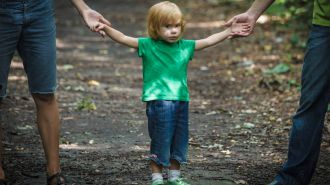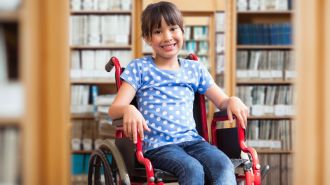
- Our studies
- Our research
- Publications and resources
- Data access and training
- About
- News
- Events
- Get in touch
- Join our mailing list

We undertake multidisciplinary research on issues that affect all our lives: child development, education, social mobility, health and wellbeing, families and family life, and ageing. We also conduct research into survey methods, and applied statistical methods.
Our applied statistical methods programme specialises in methods for dealing with attrition, causal identification, and data harmonisation.
Our research helps tackle some of the key challenges we face in our society today.
To find out more, explore the links below.

This project provided empirical evidence on curricula delivery variation in the UK and institutional differences through analysis of Next Steps and linked National Pupil Database data. This was part of our Cross Cohort Research Programme.

Incorporating seven projects, this programme explored two key themes which are both central to government policy: healthy lifestyles and the transmission of advantage and disadvantage from one generation to the next.

Research using longitudinal data is able to provide invaluable insights into how as a society we can work together to improve our quality of life. This research project included an analysis of how wellbeing and mental health have changed across generations and…

Is the upheaval of moving home detrimental to young children’s development? Professor Heather Joshi and colleagues explore this question in the context of the US and UK.

The aim of this project was to explore retirement-related attitudes, aspirations, expectations, and plans for retirement among adults in their mid to late 50s.

The fifth MCS survey took place during 2012 when participants were aged 11. Our initial findings from the age 11 survey cover a range of themes, from family structure to child cognitive development.

This project tested how neighbourhood, family poverty and other adverse circumstances are related to children’s wellbeing, as gauged through emotional and behavioural outcomes.

This project was part of a collaborative research programme entitled ‘Healthy Ageing across the Life Course’ (HALCyon). This programme was funded under the New Dynamics of Ageing initiative – a cross council multi-disciplinary research.

This project analysed data from the first four surveys of the Millennium Cohort Study, at ages 9 months, 3 years, 5 years, 7 years and 11 years. It looked specifically at factors related to parents’ contact with their children after separation,…

The aim of the study was to enhance our understanding of disabled children’s early cognitive development and their subsequent educational transitions.

This project aimed to optimise the design and coverage of the MCS age 14 time-use diary so as to maximise benefit to the research community and minimise non-response due to respondent burden.

This major ESRC project addressed the role of schooling in determining educational attainment, occupational outcomes and social mobility.